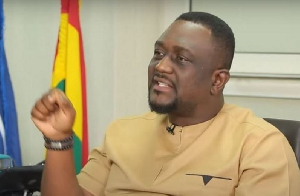 Samuel Dubik Mahama, Former ECG boss
Samuel Dubik Mahama, Former ECG boss
The former Managing Director of the Electricity Company of Ghana (ECG), Samuel Dubik Mahama, has pointed out that the company’s main challenge lies with forex rates and the depreciation of the cedi.
According to him, since ECG purchases electricity in dollars and sells it in cedis, there is a mismatch between costs and profits, leading to deficits.
“The first one is forex… you buy the electricity in dollars and you come to sell it in cedis. Then you have to find the necessary dollars to pay. If you're looking for USD to pay the Independent Power Producers (IPPs), will the money be enough to cover the whole value chain?”
His comments were quoted by citinewsroom.com.
Dubik Mahama’s remarks come amid discussions about the current government’s decision to privatise ECG.
He acknowledged that despite the inefficiencies within the company, some improvements have been made in recent years that should not be overlooked.
He argued that private sector participation already exists within ECG, and further privatisation may not be necessary.
“I do admit that there are a few inefficiencies in the company, but likewise, there are some efficiencies. Now, before you proceed with privatisation, what are the benchmarks? Let’s not forget that there is already private sector participation in ECG,” he said.
He further explained that, “At the metering point under the loss reduction program, ECG has moved from its previous position where it used to look for large sums of money to purchase meters. That was one thing I decided to change when I became the Managing Director. I discussed with the board, and we concluded that looking for capital to purchase meters didn’t make sense.”
He also suggested, “Why don’t we bring in all these metering companies and encourage them to establish factories in the country? Based on that, we now have about seven metering companies with factories in Ghana. What we then did was assign them localities to install their meters. That is private sector participation, and if you do the math, you’ll see that it saved us a lot—almost 50% in borrowing costs and administrative expenses.”
SSD/MA
Watch as Ghanaians share their views on National Cathedral project, cutting down of ministries: